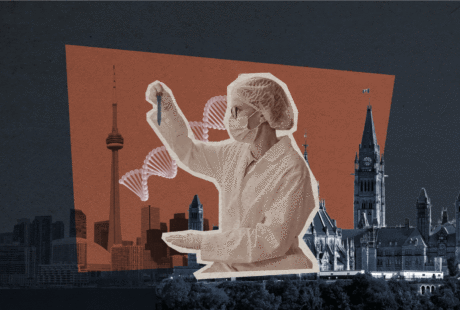Related:
New Tech and New Horizons in Healthcare and Biotech
The prospect of living forever has fascinated mankind since time immemorial. It’s the basis of religions, songs, and speculative barroom conversation. Notwithstanding one’s belief regarding an afterlife, most people have long concluded that the idea of living forever in our earthly form is an interesting, but impossible dream. Today’s scientists are making real breakthroughs that promise to extend the average human life and have already succeeded in doing so. While talk of eternal life remains speculative, it doesn’t seem as unfathomable as it once did.
Life Scientists and Investors Chase the Dream
If tackling problems is human nature, then perhaps life scientists are the ultimate problem-solvers and death the ultimate problem. Any paradigm-shifting advancement in extending life would obviously result in a bonanza of earnings, not to mention glory. Some economic heavy-hitters are on the case.
“Plenty of big names in big tech have sunk funding into ventures to solve the problem of death as if it were just an upgrade to your smartphone’s operating system,” writes Emily Willingham for Scientific American.1
Silicon Valley start-up Altos Labs2, reportedly backed by Amazon founder Jeff Bezos, has recruited a team of renowned scientists to tackle the lifespan issue. Google’s Calico2 (California Life Company) aims to combat neurodegenerative disease. The Hevolution Foundation2 is a Saudi Arabian non-profit investment fund that propels research on ‘healthspans’, and was established by royal decree. All boast vast financial resources and capable minds.
As Anjana Ahuja writes for the Financial Times, “For the super-rich who can buy everything but time, aging is just another fundamental technological problem to be solved, the human body a machine ripe for intervention.”2
A Matter of Resilience
It’s not just disease or unfortunate incidents that end human life, but a diminishing level of bodily resilience, commonly referred to as ‘dying of old age.’
Even in the absence of disease or trauma “our body’s capacity to restore equilibrium to its myriad structural and metabolic system after disruptions still fades with time,” writes Willingham.1
Simply put, the body simply becomes less and less equipped to fend off the inevitable stresses it faces.
The world’s oldest recorded living person, Jeanne Calment, died in 1997 at 122 years of age.2 Researchers theorize that, given our bodily limitations, the maximum human lifespan is 140-150 years.2 This begs the question; are those limitations absolute?
Is it Possible to Reverse Age?
In light of the pace of scientific advancements made in nearly every field, it can seem unreasonable to dismiss anything as impossible. If a century and a half of life is possible in the face of declining resilience, the next frontier becomes the elimination or reversal of this limitation.
In 2006 Shinya Yamanaka identified four proteins, dubbed the ‘Yamanaka factors’ that seem to provide the potential to turn back the clock. Mammalian cells bathed in these proteins regress to an immature state known as pluripotency, meaning that they have not yet flowered into their final form.2
“We know that hidden somewhere in our biology is the reset button of youth,” writes Ahuja. “It is why old parents produce young offspring, not kids with pre-aged cells. At the point of fertilisation, the genetic material inherited from each biological parent is somehow scrubbed clean of age-related changes. For every baby, the cellular clock starts ticking anew.”2
Turning such findings into an achievable way of reversing the aging process in humans would, for some, represent the holy grail of human achievement.
Ethical Implications of Life Extension
For just how long science can extend human life is up for debate and so, too, are the ethics of the pursuit.
Questions abound; How would the planet cope with the resulting increased population? Should selecting a multi-century life disqualify one from reproducing? Would not selecting an extended life be considered suicide? Would humans grow complacent, leading to a stagnation of ideas? How would the stages of life change? What’s an appropriate gift for a 150th anniversary?
Many believe that energy may be better spent attempting to improve quality of life, or bringing life expectancy in developing nations up to par. While some consider the pursuit of eternal life to be ego-driven folly, philosopher and author Ingemar Patrick Linden is not among them.
“My experiences tell me that unless there is a good afterlife, death is a horrific evil and nothing is more important than preventing good people from dying,” he writes, calling himself a ‘death abolitionist and a life prolongevist.’2
Ethical debates aside, human nature suggests that if we can drastically extend life, we will. With some of humanity’s brightest minds teaming with some of the planet’s deepest pockets, there will certainly be a concerted effort.




